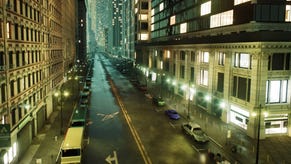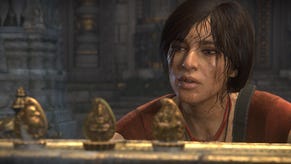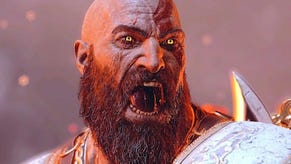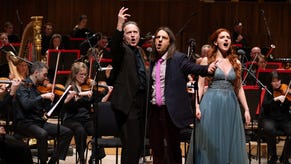Sex 'n' Drugs 'n' Rock 'n' Roll
Jon Hare's account of a historical monument to over-ambition.
What is commonly thought of about SDR was that it was the salacious content that was its downfall - but, actually, we visited a top lawyer shortly after we got the game back from GT and he told us that the only thing illegal in the game was one solitary blasphemous reference that we promptly changed. The downfall with SDR, Have A Nice Day, and the subsequently-released Sensible Soccer 1998 was that when we signed up the three-game deal with Warner in 1995 we had no 3D programmers in our team at all, and the first three that we hired were all substandard. This lack of foresight and bad judgement on our behalf is what eventually led to Sensible's downfall.
By the end of 1997, SDR was in a new position. We decided to abandon Have A Nice Day, which had hit a very large technical brick wall, and to focus on reselling SDR to a new publisher. This time was the first and only time that Chris and I found ourselves putting our hands into our own pockets to bail out the company as we bankrolled SDR for a further four months while we attempted to find ourselves a new publisher.
But this was not an easy sell by any stretch of the imagination, even if people did like the little that we could show them. No one could see how this offensive game could find it's way onto the shelves in the US - this was before GTA, remember. The fact that GT wanted a cut of whatever money we received was offputting to a lot of publishers.
So, despite the fact that 90 per cent of the script, 80 per cent of the sound and 75 per cent of the art was complete, the programming was still only 50 per cent complete. The very worst thing was that we could not really run the adventure engine at all when we were showing the game to people. The only thing we had to show that ran smoothly were the music videos available on this website - it was a nightmare, to be honest. We just needed an extra six months to get the engine working and then virtually the whole of the game would have been playable at once because most of the art, sound and scripting content was already finished.
But Chris and I were not prepared to bankroll the game indefinitely, so we had to sell it as it was. We saw 20 publishers (all of the big ones) and our old friends at Virgin offered us a UK-only publishing deal, but the money was not enough to cover the remaining development costs. After four months we very reluctantly threw in the towel and laid off about 60 per cent of our staff. The company was now officially in wind-down mode.
The following year, 1998, was a quiet year for SDR. At Sensible we focused mainly on the Soccer games left on our to-do list. We wound the company down to the bare minimum of employees and, eventually, in October 1998 after two Sensible Soccer releases, GT told us that it did not want the final soccer game. This was a huge relief to us again, as we would have been making it at a loss, just to honour the deal.

With the Warner/GT deal now history, Chris and I approached Codemasters about buying our company (essentially the company had been reduced to nothing more than a bunch of intellectual property rights by this stage, including the SDR IP). Codemasters agreed, and in May 1999 the deal was complete.
At about this time, after Chris and I had finally been paid back the money we had put in to keep the company going at the end of 1997, I calculated the overall finances of the Warner/GT deal of which SDR was a big part, and, to my surprise I calculated that we had actually made a healthy profit out of the deal overall. Despite the huge amount of work and all the technical mishaps on SDR, the relaxed milestone structure and GT's decent way of handling our ultimate exit meant that this potential nightmare had actually ended up being pretty good business. Although of course it was no consolation for the fact that the game never saw the light of day.
It was in early 1999 that I really started to feel the pain from SDR not being released. By this stage it had been five years of my creative life, and as an artist, pulling the plug on your greatest work in order to protect your family and your finances was a very bitter pill to have to swallow. At the end of the day I could have remortgaged my house that I bought with my Sensible Soccer royalties to risk everything on SDR, but I chose not to. I am glad I made that decision, but I still hated to see the game just disappear. It was a bitter loss for me. It was also a huge loss for Richard Joseph who was mortified that the project had been canned. He had done so much brilliant work on it and the soundtrack was so nearly finished now.







